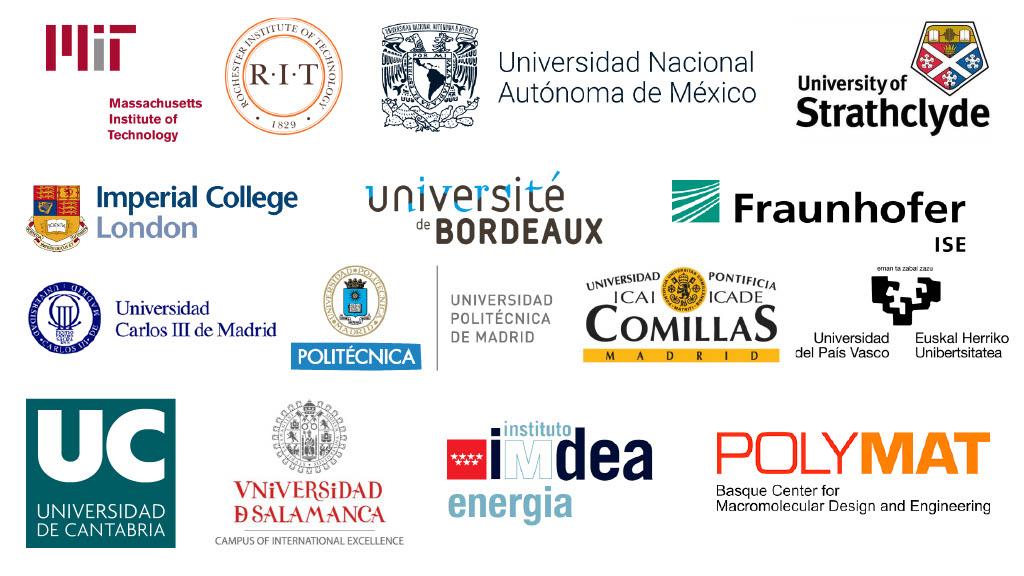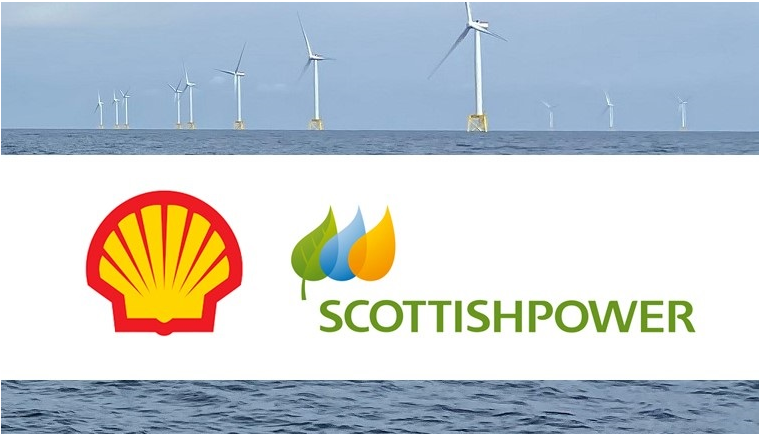Academic Partners

1. Description
Universidad Carlos III de Madrid (UC3M; ES) was established in May 1989. From the outset it was intended to be an innovative public university, providing teaching of the highest quality and focused primarily on research. UC3M´s mission is to contribute to the improvement of society through teaching of the highest quality and cutting-edge research in line with stringent international guidelines.
The University is located in the southern metropolitan area of Madrid and consists of 5 centres (2 Faculties, 1Technical School, 1 School of Graduate Studies and 1 Doctoral School), in 4 campuses. The University has 22.666 students (1.232 PhD students) and 2.081 Faculty Members, provides studies on 37 Bachelor’s Degrees, with 11 Dual Bachelor’s Degrees, 100 Master Programmes, 19 Doctoral Programmes, 1 Science & Technology Park and 5 Associated Research Centers
UC3M has strived, since its foundation, to make research one of the fundamental pillars of its activity, both for the enhancement of its teaching and for the new knowledge and new areas of research. At international level, holds and noteworthy position on the QS TOP 50 under 50 Ranking, at the 35th spot worldwide and ranked 16th in Europe. Other measures of the high level of University performance are:
– Among the 50 best European universities in teaching excellence according to the 2019 THE Teaching Ranking.
– 311st position on the QS World University Rankings 2021
– Classified in the Shanghai Ranking as one of the best universities in the world in 15 academic subjects.
Main research figures:
– Research Groups: 132
– Doctoral students: 1.232
– Chairs of Research: 18
– Technology Laboratories: 16
– Annual research funding (figures 2019): 33.956 M€
Research activities related to the Energy field are performed in more than 22 research groups from the Engineering School and the Faculty of Social Sciences which expertise in renewable energy sources (mainly wind farm and photovoltaic installations), smart grids, integration of renewable energy sources into power networks, electricity markets, control of power converters, and design and control of efficient storage systems.
2. Link web
3. Email contact
4. Research areas
Wind Energy:
- Operation and control of wind power plants (“onshore”, “offshore”).
- Maintenance and operation of wind power plants.
Energy Storage:
- Thermal and electrochemical storage.
- Bidirectional converters for energy storage in electricity networks and transport (electric vehicles, trains …).
Smart Grids:
- Demand response and flexibility services.
- Planning and operation in smart grids.
Photovoltaic Energy:
- Nanostructures and metasurfaces to improve efficiency in solar cells.
- Power converters for the optimization of photovoltaic solar plants.
Electric Vehicle:
- Electric vehicle integration into power grids.
- Vehicle-to-grid V2G flexibility services.
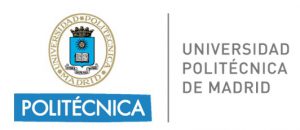
1. Description
Universidad Politécnica de Madrid (UPM). UPM is the main Spanish technological university, specialized in in Engineering and Architecture, Sport, Music and Fashion. It consists of 15 Schools and one Faculty, and 21 Research and Innovation Institutes and Centres. UPM will offer the doctoral candidates an excellent framework for their studies through their extremely strong bonds with companies (209 M€ private financed projects in the period 2008-2021), more than 2,000 indexed publications per year, but also in technological innovation (more than 300 spin-offs created and coached from 1998 to date).
UPM heads the Spanish Universities’ participation in FP7 (290 projects, 82.5M€) and H2020 (5,450projects, 116M€).
UPM is the first university in number of R&D contracts with industry, as well as in technological entrepreneurship, supported by its annual Innovation & Entrepreneurship programs and competitions, as well as by its 69 University-Enterprise Chairs. Regarding intellectual and industrial property protection, and according to data published by the Spanish Patent and Trademark Office (OEPM), the UPM also ranks first in the list of patents filed in its office, with 614 patents in the accumulated period 2007-2019.
In terms of Human Resources, UPM has more than 2,890 professors and researchers on its staff (375 Full Professors), in addition to more than 500 researchers and technicians hired by international, national and regional competitive programs, and 1,742 administration and service staff.
UPM has obtained 93 Marie Skłodowska-Curie projects and has employed 68 MSCA fellows to date. There are ca. 2,000 students enrolled in Doctoral Programmes (33% coming outside Spain) and each year ca. 200 of them attain their PhD degree (50% as International Doctorate). UPM’s is committed to the main European research and innovation networks, highlighting its participation in the European Institute of Innovation & Technology (EIT), as it is the only Spanish university, and one of the few at European level, that participates in five of these Communities.
UPM adheres to the “Charter & Code” for researchers, and was awarded in 2019 with the HRS4R label (HR Excellence in Research Award).
2. Link web
3. Email contact
4. Research areas
- Photovoltaic Energy (PhE): E.g., ultra‐thin solar cells, III‐V‐on‐silicon solar cell, lead‐free perovskite materials…
- Wind Energy (WE): E. g. turbine development, noise impact, wind energy production prediction…
- Energy Storage (EnS): E.g. ultra‐high temperature energy storage devices, thermo‐photovoltaic devices for heat to power conversion…)
- Smart Grids (SmG): E.g. energy management based on DLT technologies, Smart Cities based on FIWARE…
- Electric Vehicle (EV): E.g. car development, graphene‐based supercapacitors…

1. Description
IMDEA Energy Institute is a research initiative driven by the regional government of Madrid (Spain). IMDEA cluster is gathering more than 800 researchers (more than 40% foreigners, and more than 45% doctors). IMDEA Energy, created in 2006, is one of the research institutes of the IMDEA cluster, which focuses its research on low-carbon technologies with emphasis on solar energy systems; smart grids and energy storage for renewable energy plants and electric vehicles. IMDEA Energy scientific excellence has recently been accredited with the prestigious Maria de Maeztu award, from the Spanish Ministry of Science and Innovation. IMDEA Energy has positioned worldwide as one of the top research institutions in energy and related areas, according to several indicators, such as quality of the publication journals, citation impact and scientific outcomes per doctor. This has been possible thanks to several singular features: multidisciplinarity, excellence and commitment of the researchers, efficient management, outstanding facilities covering a wide range of TRL and balanced combination of fundamental and applied research topics. IMDEA Energy has participated in 235 projects (18 regional, 75 national, 39 international and 103 contracts with industry) and managed 102 grants for researchers. With regards to hosting and training activities to MSCA fellows, IMDEA Energy has been partner organisation of the MSCA-COFUND AMAROUT I, AMAROUT II and GOT ENERGY programmes, hosting a total number of 31 postdoctoral fellows. In addition, IMDEA Energy has been beneficiary of three MSCA ITN (one coordinated) and five individual MSCA fellowships.
2. Web link
3. Email contact
4. Research areas
Wind Energy
- Grid integration issues of wind energy, for example, control systems for multi-terminal DC networks used in offshore wind generation and its integration to onshore AC power grids.
Energy Storage:
- Energy storage by thermal, electrochemical and thermochemical methods to increase the dispatchability and penetration of renewable energies and the distributed generation of electricity.
- Development, testing and modelling of redox flow batteries especially suitable to be coupled to renewable energies.
- Reusability and recyclability approaches to maximise the lifetime and promote circular economy in Lithium-ion batteries.
- Thermal and thermochemical storage technologies to increment the use of renewable energy in Power-to-Heat applications.
- Chemical storage technologies (hydrogen) to increment the use of renewable energy in Power-to-X applications.
Smart Grids:
- Smart management of electricity demand and improvement of the reliability and stability of the electricity networks of the future with high penetration of renewable energy, e.g. through the application of optimisation-based algorithms.
Photovoltaic Energy:
- Research on PV materials, such as the design, synthesis and characterization of lead-free organic-inorganic materials for nanostructured dye-sensitized solar cells.
- Soiling monitoring and mitigation for optimised electricity production by PV.
- Development of photo-electrochemical cells (PEC) incorporating PV technology for solar fuels production.
Electric Vehicle:
- Flexible electrochemical storage devices able to be integrated in the panelling and lining of vehicles.
- Assessment and modelling of the State of Health of Li-ion battery packs from electric vehicles for second life stationary applications.
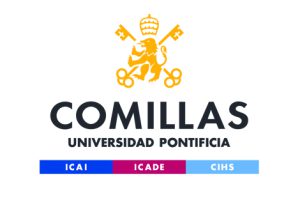
1. Description
The Institute for Research (IIT) in Technology belongs to the School of Engineering of ICAI. IIT is organized in nine research areas: 1) Electric Power Systems, 2) Energy Systems Modelling, 3) Energy Economics and Regulation, 4) Smart and Sustainable Grids, 5) Intelligent Systems, 6) Railway systems, 7) Bioengineering, 8) Fire safety engineering and 9) Smart Management for Sustainability.
The IIT is a leading institute in power and energy systems-related research and research in the transportation sector. It has gained significant experience at technical, economic and regulatory level in renewable energy resource integration at both bulk and distribution level and the deployment of smart grids through numerous privately and publicly funded national and international research projects such as H2020 European projects. IIT has also extensively researched the impact and benefits of distributed and bulk energy storage on power and energy systems and energy efficiency in railway transportation and energy communities. About 350 high-quality research articles related to these fields have been published during the last five years. In addition, IIT counts with an observatory of electric vehicles and sustainable transportation.
2. Web link
https://www.iit.comillas.edu/index.php.en
3. Email contact
4. Research areas
- Photovoltaic Energy (PhE):Impact of distributed energy resources on distribution system operation and planning, Community self-consumption and citizen energy communities, Stability and control as affected by PV plants, Big data driven operation and planning.
- Wind Energy (WE):Off-shore wind farm design – layout and micrositing, Stability and control as affected by wind farms, Big data driven operation and planning.
- Energy Storage (EnS):Transmission system expansion planning with energy storage, Stability, control and operation of island power systems.
- Smart Grids (SmG):Stability, control and protection of low-inertia system and microgrids, Scalability and replicability, Regulatory conditions for an efficient integration of distributed energy resources: grid regulation and provision of ancillary services by distributed energy resources, Cybersecurity of smart grids.
- Electric Vehicle (EV):Ancillary services provision through electric vehicles, EV charging through railway energy system, Occupant safety of electric vehicles.
- Multi-energy networks: Energy services in districts
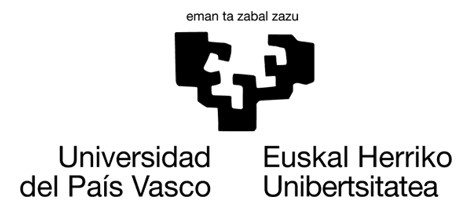
1. Description
Universidad del País Vasco (UPV/EHU; ES) is a public research university located in the Basque Country, Spain. UPV is a multi-campus organization with nearly 47000 students of 71 recognized official degrees, 103 Masters (among them 2 Erasmus Mundus Master of Materials for Energy Storage and Conversion – MESC+ and Renewable Energy in the Marine Environment – REM and a Master of Integration of Renewable Energy Sources into the Electricity Grid) and 71 PhD programs. There are over 5000 researchers and teachers at different levels, over 1200 people hired as training research personnel. The Smart Specialization of the Region of Basque Country (RIS3 Euskadi), in which UPV participates actively, identifies three strategic areas, with ENERGY playing a leading role.
2. Link web
https://www.ehu.eus/en/en-home
3. Email contact
4. Research areas
Wind Energy: Download here the information of the research groups of the area
- Power circuits and control for energy converters.
- Renewable energies integration in the urban setting.
- Power estimation through real time forecasting and long-term forecasting.
- New sustainable materials for wind energy components.
Energy Storage: Download here the information of the research groups of the area
- Materials for electrochemical storage systems
- Building energetic behavior and conservation.
Smart Grids: Download here the information of the research groups of the area
- Intelligent networks and renewable energy
- Renewable energies integration in the electric system
Electric Vehicle: Download here the information of the research groups of the area
- New sustainable materials for EV components
- Artificial Intelligence applied to EVs and energy demand
- Power and control circuit development
- Automatic optimization processes for electric motors
- Li-ion batteries
Photovoltaic Energy: Download here the information of the research groups of the area
- Optoelectronics in nanosystems
- Dynamic line rating application, monitoring and management
- Advanced control systems
- Development of Polymeric Capacitors for PV energy storage
- Integration of PV in electricity systems

1. Description
Polymat – Basque center for Macromolecular Design and Engineering (POL; ES). Polymers are found in such a large variety of products that have shaped modern life. In the future, polymers will continue substituting other materials in established applications and will play a major role in the development of the technologies needed to address some of the 21st Century challenges such as energy, health care and sustainability. POLYMAT is devoted to use-inspired fundamental research on synthesis, assembly and processing of polymers that in concert with theory and simulation enable addressing to these challenges.
2. Web link
3. Email contact
4. Research areas
- Photovoltaic Energy (PhE):Hybrid materials for perovskite solar cells.
- Wind Energy (WE):Anticorrosion and antifouling coatings for offshore.
- Energy Storage (EnS):Polymers for all organic sustainable batteries.
- Electric Vehicle (EV):Polymers for metal batteries for electric vehicles.
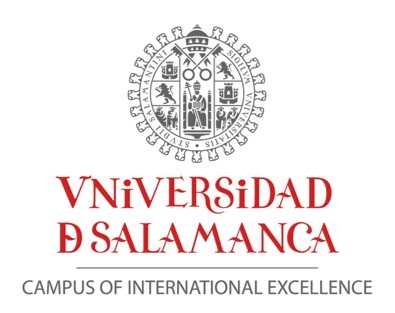
1. Description
Universidad de Salamanca (USAL; ES) is an entity with a strong research vocation with 52 Departments and 12 research institutes (i.e. >2000 professors/researchers) carrying out work in a wide range of fields of knowledge. Its entity also stands out for its high capacity to attract competitive funds for the development of research programs, including Horizon 2020 projects. It has many groups working on sustainable energy, always addressing it from very different points of view: technology, economy, environment, society. USAL staff is always looking to apply knowledge in the energy field, collaborating with government agencies, associations, users and companies.
2. Web link
3. Email contact
4. Research areas
TIDOP Group:
- Photovoltaic Energy (PhE): Multi-purpose Solar Energy Facilities (building, city, urban furniture); Monitoring and Evaluation of Solar Panels; Automatic 3D Geometric Characterization for Solar Assets; Remote Sensing Analysis; Mixed Renewable Energy Systems.
- Wind Energy (WE): Forecasting of wind production; market analysis(Daily and intraday market Demand and supply); integration with other renewable energies such as green hydrogen; digital twin for the maintenance of wind parks.
- Evolution of the electric vehicle: intelligent 3D cartographic maps for electric vehicle; analysis of efficient routes.
- Energy Storage solutions: subterranean storage of green hydrogen.
BISITE Group:
Fields of interest:
- Photovoltaic Energy and Wind Energy (edge computing for predictive maintenance, logic control modeling, generation and consumption forecasting)
- Smart Grids (artificial intelligence for demand response optimization, design ofBEMS/HEMS systems)
- Evolution of the electric vehicle: intelligent 3D cartographic maps for electric vehicle; analysis of efficient routes.
ESALAB Group:
Fields of interest:
- Photovoltaic Energy: optimization in the design and maintenance of self-consumption photovoltaic installations through data processing of current installations; evaluation of the impact of this type of electricity generation on the technical management of buildings and energy efficiency.
- Electric vehicle: optimization of electricity consumption through the study of the different parts of the electrical installation of the car, from generation to consumption, including renewable generation systems such as regenerative braking.
THERMODYNAMIC Group:
https://diarium.usal.es/termodinamica/
Fields of interest:
Photovoltaic and wind energy:
- Thermal storage for photovoltaic and wind technologies: It seems imperative for the next years to develop technological routes to produce electrical energy in a renewable and clean way but also ensuring dispatchability and control on production. This is associated to energy storage. Particularly, thermal storage for photovoltaic and wind technologies is one of the active lines of research in our group, “Research Group on Energy Optimization, Thermodynamics and Statistical Physics” of the University of Salamanca, Spain.
There is a great interest in the scientific community in thermal storage systems where heat pumps play a key role. The concept is based on the use of electrical energy during periods with an excess of production or low prices to produce thermal energy through a heat pump thermodynamic cycle (charge phase). Then, this thermal energy is stored by means of liquid or solid materials as molten salts, packed bed, etc. When demand requires electrical energy a thermal engine transforms stored heat in mechanical and then in electrical energy again (discharge phase). Thermodynamic cycles that can be employed are Rankine or Brayton. A main advantage of these systems is its high theoretical efficiency. Other advantages are: long life cycles and no geographical limitations. Plants could be compact because the same equipment could be used for charge and discharge phases and are suitable for existing plants (wind, photovoltaic). Nowadays, these systems are at a R&D stage. Theoretical predictions as well as its possible real implementation are to be investigated in the next years.
PSP RESEARCH GROUP
http://diarium.usal.es/marianom3/
Fields of interest:
Photovoltaic and wind energy:
- We are currently working on the storage of solar and wind energy in the form of chemicals as a way to develop long term storage technologies capable of securing the penetration of renewable variable resources in the energy mix. In addition, the operation of such technologies is also of interest to our group. For more details http://diarium.usal.es/marianom3/
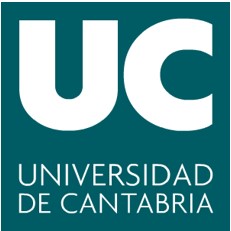
1. Description
Universidad de Cantabria (UC; ES).
The UC‘s Environmental Hydraulics Institute of the “IHCantabria” is a joint Research Centre that carries out research, knowledge transfer and training of specialists in the fields of fresh and saltwater. With over thirty years of experience, the labs at IHCantabria belong to the network of Scientific-Technical Facilities of the Spanish Ministry of Science, Innovation and Universities. The experience of IHCantabria in the physical environment allows to deal with the challenges which are arising in the field of Marine Renewable Energies: energy resource availability, conceptualization and device simulation, scale testing, calibration, validation using numerical models, pre-design of these prototypes and subsequent scale demonstration, analysis of the impacts of these devices on the coast and their monitoring in real time.
The Group of “Advanced Electro-Energetic Technologies” has a long experience in research and knowledge transfer being its main lines of research: grid-integration of renewable energies and power quality. The impact of the research activities of the GTEA team has a strong and successful participation in serveral research national and international programmes, both public (PROFIT, CENIT, INNPACTO, RETOS, H2020) and private funded by important companies like REE (Spanish TSO), and IBERDROLA, VIESGO and GNF (Spanish DSO). The collaboration with the industry is a key point for the GTEA group that defines not only the R&D&I topics but also the services offered to the companies.
Despite the fact that the research is focused on Smart Grids, the Group has a multidisciplinary composition with a strong background in both power systems, renewable energies, big data and machine learning analysis techniques, including the development of on-cloud web services.
The group has solid international links with other groups working in the same topics. In addition the team has a strong capacity in terms of both quantity and quality of published papers.
2. Web link
https://ihcantabria.com/en/investigacion/grupo-de-ingenieria-offshore-y-energias-marinas/
3. Email contact
raul.guanche@unican.es
mananam@unican.es
4. Research areas
- Wind Energy: Marine renewable energies
Research Group: Marine Energy and Offshore Engineering Group.
Web: https://ihcantabria.com/en/investigacion/grupo-de-ingenieria-offshore-y-energias-marinas/
Contact person: Raúl Guanche García
E-mail: raul.guanche@unican.es
- Smart Grids: Cloud Computing & Advanced Computing
Research Group: Advanced Electro-Energetic Technologies Group
Web: www.gtea.unican.es
Contact person: Mario Mañana Canteli
E-mail: mananam@unican.es
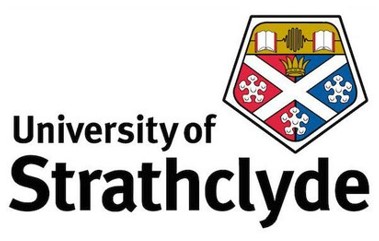
1. Description
University of Strathclyde (UoS; UK). The UoS’s department of Electronic and Electrical Engineering is globally renowned as a leading academic center for research excellence, industry engagement and first-class teaching and training. Over the past 5 years, the Department’s research income has been in excess of €65.5m, with industrial funding of over €21.8M. The Department’s research activities are supported by approximately 80 academics, >120 post-doctoral researchers, >220 PhD researchers, IT and technical support staff. The department is driven by two broad-based research Institutes, with expertise in power and energy, telecommunications (5G and “LiFi”), signal and image processing, ultrasonics and robotics, AI, microsystems, aerospace and space, photonics, power electronics and control systems. It also includes internationally leading research infrastructure and facilities (e.g. the Power Networks Demonstration Centre, the Advanced Nuclear Research Centre, robotics labs and the Scotland 5G Centre).
2. Web link
https://www.strath.ac.uk/research/subjects/electronicelectricalengineering/
3. Email contact
4. Research areas
Wind Energy, Smart Grids, Energy Storage and Electric Vehicles – with focus on power electronics/conversion, operation, control, protection and monitoring, and modelling, simulation and optimisation activities. Laboratory demonstration and “hardware in the loop” plays a key role in many of our activities.

1. Description
Imperial College London (ICL; UK) is a global top ten university with a world-class reputation in science, engineering and business. Energy Futures Lab is the College’s energy institute, established in 2005 to address global energy challenges by identifying and leading new opportunities to serve industry, government and society at large through high quality research, evidence and advocacy for positive change. Working with academics across the College, the institute aims to drive the decarbonisation and sustainable transformation of our energy systems by developing multidisciplinary collaborations, formulating programmes of application-inspired basic research, and translating and disseminating findings for use by policymakers and industry. With its six broad research themes – Materials for Energy; Sustainable Power; Sustainable Fuels; Energy Infrastructure; Low Carbon Cities and Transport; and Policy and Innovation – Energy Futures Lab and ICL are ideally suited to host E4F fellows.
2. Link web
https://www.imperial.ac.uk/energy-futures-lab/
3. Email contact
efl.researchdevelopment@imperial.ac.uk
4. Research areas
Energy Storage:
- aquifer thermal energy storage
- production of future transport and heating fuels
- future fuels transport, blending and storage
- sustainability of future fuels production and utilisation
- techno‐economic and environmental optimisation of energy storage options
- grid scale battery technologies, including redox flow batteries
- transmission system planning with energy storage
Smart Grids:
- digitalisation for demand response and integration of renewables
- smart grid sensing
- monitoring and asset management
- analytics for optimising microgeneration and storage
- microgrid management and embedded control
Wind Energy
- data fusion and optimisation for offshore wind farm design, control and maintenance
- wind farm performance during critical events and in extreme environments
- procedures for wind farm foundation design under dynamic loading
- wind farm decommissioning and strategies for repowering
Photovoltaic Energy, for example:
- solar to fuel technologies, including (photo)electrochemical devices
- novel materials development for photovoltaics and chemicals/fuels (H2, NH3, CxHy) production

1. Description
Massachusetts Institute of Technology (MIT; US). The MIT Energy Initiative is MIT’s hub for energy research, education and outreach, connecting faculty, students, and staff to develop the knowledge, technologies, and solutions that will deliver clean, affordable, and plentiful sources of energy. Its mission is to develop low- and no-carbon solutions that will efficiently, affordably, and sustainably meet global energy needs while minimizing environmental impacts, dramatically reducing greenhouse gas emissions, and mitigating climate change.
2. Link web
3. Email contact
Aruna Joglekar, MITEI Member Services Program Manager: arunaj@mit.edu
4. Research areas
- Smart Grids and Electric Vehicles: In the area of smart grids and electric vehicles, interested in studying the power infrastructure needs, operations and market design elements needed to support expanded electrification of transport in conjunction with other end-uses (e.g. space heating), so as to minimize impacts on costs and improve system resiliency. Mechanisms to support increased demand-side participation (buildings, industry and transport) in operations and planning is another area of interest.
- Energy Storage: In the area of energy storage, interested in the following areas: a) exploring the role for alternative energy storage technologies in improving the resiliency low-carbon electricity systems to climate change impacts (e.g. extreme weather), b) the potential to deploy alternative energy storage technologies to repurpose existing thermal power plant infrastructure (prime mover capacity at nuclear, coal, gas facilities) for use in carbon-constrained grid scenarios, c) incorporating advanced analytical techniques (e.g. reinforcement learning) to support storage and demand participation in electricity markets.
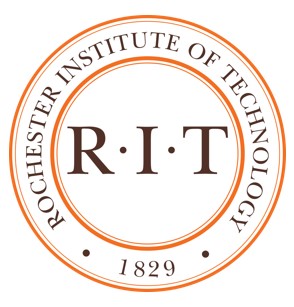
1. Description
Rochester Institute of Technology (RIT; US) is a diverse and collaborative community of engaged, socially conscious, and intellectually curious minds. Through creativity and innovation, and an intentional blending of technology, the arts and design, we provide exceptional individuals with a wide range of academic opportunities, including a leading research program and an internationally recognized education for deaf and hard-of-hearing students. RIT is a top 100 national research university. RIT offers the following degrees: doctoral (PhD) programs in astrophysical sciences and technology, colour science, computing and information sciences, imaging science, engineering, mathematical modelling, microsystems engineering, and sustainability.
2. Link web
3. Email contact
4. Research areas
- Photovoltaic Energy (i.e. High Efficiency III-V Solar Cell Development)
- Wind Energy (Offshore being the priority).
- Energy Storage. (i.e. Nanomaterial Enhanced Lithium Ion Batteries)
- Smart Grids. (i.e. Technologies for monitoring and control)
- Electric Vehicle. (i.e. Smart transportation and logistics)

1. Description
Fraunhofer Institute for Solar Energy Systems (FRAU; DE), with a staff of more than 1250 and a yearly budget of around 100 M€, is the largest solar research institute in Europe, being a part of the Fraunhofer Gesellschaft for Applied Research. Through excellent research results, successful contract research with industry partners, spin-off companies and global cooperation, its mission is to shape the transformation of the global energy system. The institute focuses on technology development, system integration of solar photovoltaics and solar thermal systems as well as storage and hydrogen technologies. Together with companies, we transform original ideas into innovations that benefit society and strengthen economy. With our technological and system-oriented approach, we support industrial implementation and successful market entry. Our scientific work ranges from materials research through to system integration.With a high number of external students working for their BSc, MSc or PhD the institute has a large dedication to scientific education. In the academic cooperation with the Albert-Ludwigs-University in Freiburg and others many senior scientists teach in courses related to solar energy and energy efficiency.
2. Web links
https://www.ise.fraunhofer.de/en.html
https://www.ise.fraunhofer.de/en/business-areas.html
3. Email contact
werner.platzer@ise.fraunhofer.de
4. Research areas
- Photovoltaics (Photovoltaic Energy)
- Hydrogen Technologies (Energy Storage, Photovoltaic Energy)
- Electrical Energy Storage (Energy Storage)
- Thermal Energy Storage (Energy Storage)
- Solar Thermal Power Plants (CSP) and Solar Heat for Industrial Processes (CST) (Energy Storage)
- Power Electronics, Grids and Smart Systems (Smart Grids, Electric Vehicle)
- Energy – Efficient Buildings (Energy Storage, Photovoltaic Energy and Smart Grids)

1. Description
Université de Bordeaux (UBx; FR) is ranked among the top French universities for the quality of its education and research. As multidisciplinary, research-focused and international institution, it leads an ambitious development program with its partners to further promote Bordeaux as a “Campus of Excellence”. UBX promotes the development of training, research and knowledge transfer within its numerous Clusters of Excellence. It counts about 56,000 students (including 6,800 international students) and 5,900 staff (including 4,000 academic and research staff). In addition, 2,000 PhD students work in our laboratories and around 900 international researchers are welcomed each year.
Research at UBx is both multidisciplinary and interdisciplinary. Its cutting-edge research activities are carried out in 88 Joint Research Units associated with major research bodies (CNRS, CEA, INSERM and INRA) organized in 11 research departments associated with major research bodies:
› Material and light sciences
› Environmental sciences
› Engineering and digital sciences
› Archeological sciences
› Social sciences of contemporary changes
› Evaluation, behavior, organization
› Law and social transformations
› Bordeaux Neurocampus
› Biological and medical sciences
› Public health
› Health sciences and technologies
In parallel with the creation of research departments, a federation of platforms has been created, and contributes to the optimization of a high-level research structures.
Regarding energy, research pursues along the following directions: 1) Electrocatalysis; 2) Supercapacitors; 3) Dielectric capacitors; 4) Polymer electrolytes and (semi)conducting (co)polymers for energy production, optoelectronics and photovoltaics.
2. Web links
https://www.lcpo.fr/
https://www.hadziiteam.com/
http://www.crpp-bordeaux.cnrs.fr/spip.php?article1069
3. Email contact
audrey.sidobre@u-bordeaux.fr
european.projects@u-bordeaux.fr
4. Research areas
For the CRPP research Laboratory
Research lines: Energy storage, such as the development of novel bio-based carbon electrodes for supercapacitors and nanocomposites for dielectric energy storage. Indeed, CRPP has developed for several years’ new materials for energy applications in the form of electrodes, fibers and thin films made from carbon materials and polymers. A focus is currently given on carbon materials derived from lignin and cellulose.
The Paul Pascal Research Center (CRPP) is a laboratory of the CNRS and of the University of Bordeaux. The CRPP is a multidisciplinary research laboratory with expertise in materials science, soft condensed matter and biotechnologies. The Center employs both CNRS researchers and professors of the University of Bordeaux and develops international collaborations in various fields.
The Carbon Nanotube and Graphene (NTG) team of CRPP, with approx 20 people, focuses its research on the chemical and physical manipulation of carbon nanotubes and graphene. Its research is based on original processes for the assembly, dissolution and functionalization of nanoparticles. The NTG team develops new technologies for the realization of films, fibers and other nanocomposites with controlled structure. The main objective is the achievement of original properties and performances related to the properties of carbon nanoparticles. These properties are used for energy conversion or storage systems, electrodes of supercapacitors or biofuel cells, new catalysis systems, and 3D printable materials. In response to the challenges of sustainable development, the NTG team is expanding its research into new precursors of carbonaceous materials. These include food waste or bio-sourced products such as lignin and cellulose. The team also uses its expertise in manipulating and structuring nanoparticles to tackle new projects in the fields of dielectric or piezoelectric polymers. The team develops most of its research in collaborative academic and industrial projects, at national and international levels.
For the LCPO research laboratory
Research lines: Photovoltaic Energy, either Flexible Organic Solar Cells or Hybrid Solar cells such as Perovskite-based. Indeed, we have developed over the years skills in Organic Polymer Materials for transparent electrodes (e.g. PEDOT inks), as compatibilizers (e.g. block copolymers) or Hole Transport Materials (e.g. polymer electrolytes) for high efficient devices and targeting improved long term stability.
The Laboratoire des Chimie des Polymeres Organiques, LCPO, is a joint research unit (UMR5629) of the University of Bordeaux, CNRS, and Bordeaux National Polytechnic Institute. LCPO employs around 120 people, among which 7 CNRS researchers, 18 assistant, associate, and full professors of the University of Bordeaux and Bordeaux National Polytechnic Institute, 15 administrative and scientific staff members, and around 80 PhD students, post-doctoral fellows and visitors. LCPO has worldwide recognized expertise in polymer synthesis, green chemistry, macromolecular engineering and self-assembly towards the development of functional materials for organic electronics and biomedical applications.
Within LCPO, Team 4 is composed of 1 CNRS researcher, 3 professors and 3 scientific staff and 25 PhD students and PostDocs. LCPO Team 4 (www.hadziiteam.com) led by Prof. Georges Hadziioannou (Professor University of Bordeaux, 430 publications, h ~ 64) has recognized expertise and infrastructure for the design, the formulation, the processing and the integration of functional polymer materials for energy and optoelectronics applications. Together with Dr. Eric Cloutet (Senior CNRS Researcher 138 publications, h ~ 35) they have recently developed numerous architectures and structures of (semi)conducting (co)polymers with particular attention to photovoltaic applications. Three types of materials are particularly studied:
- Block copolymers as compatibilizers/nano-structuring additives for the active layers of organic solar cells (see for instance: Hadziioannou, G. and coll. Adv. Mater. 24(16), 2196-2201 (2012)). It has been demonstrated that rod-coil block copolymers (with wisely selected blocks towards specific interactions with the donor and acceptor partners in bulk heterojunctions) can be efficiently used as nano-structuring agents in OPV devices and even increase their lifetime.
- Alternative PEDOT/polyanion conductive inks for transparent electrodes (see for instance: Hadziioannou, G. and coll. Angew. Chem. Int. Ed. 54, 8506-8510 (2015)). These original conductive polymer inks can efficiently replace the classical PEDOT:PSS and ITO electrodes, offering at the same time conductivity, stability and flexibility.
- Polymer electrolytes for the hole transport material layer of hybrid perovskite solar cell with power conversion efficiency up to 20% (See for instance Hadziioannou, G. and coll. ACS Appl. Energy Mater. 3(2), 1393-1401 (2020)) where they efficiently replaced the classical dopants of SpiroOMeTAD compound. Polymer electrolytes could also efficiently dope the active perovskite layer.

